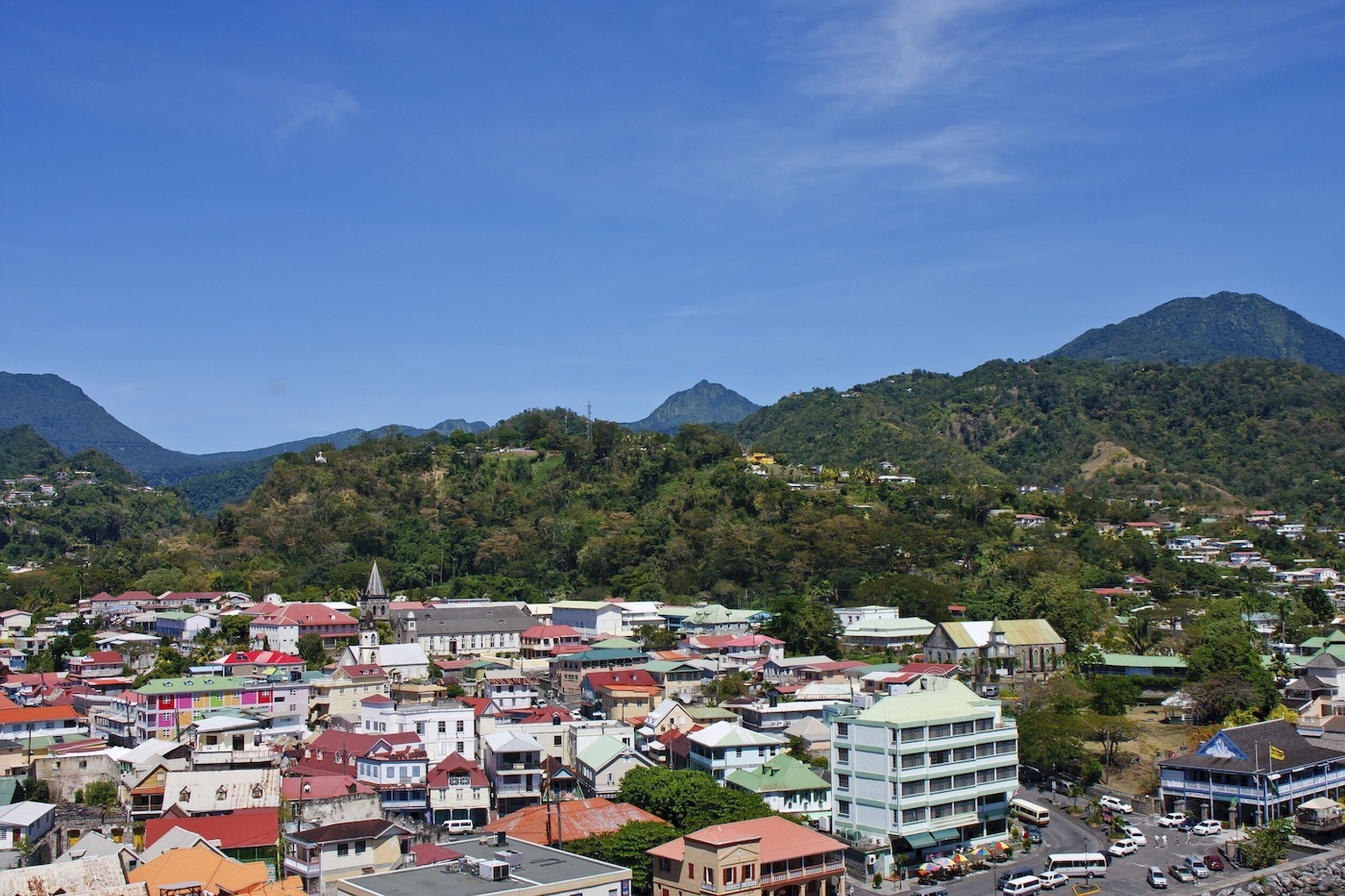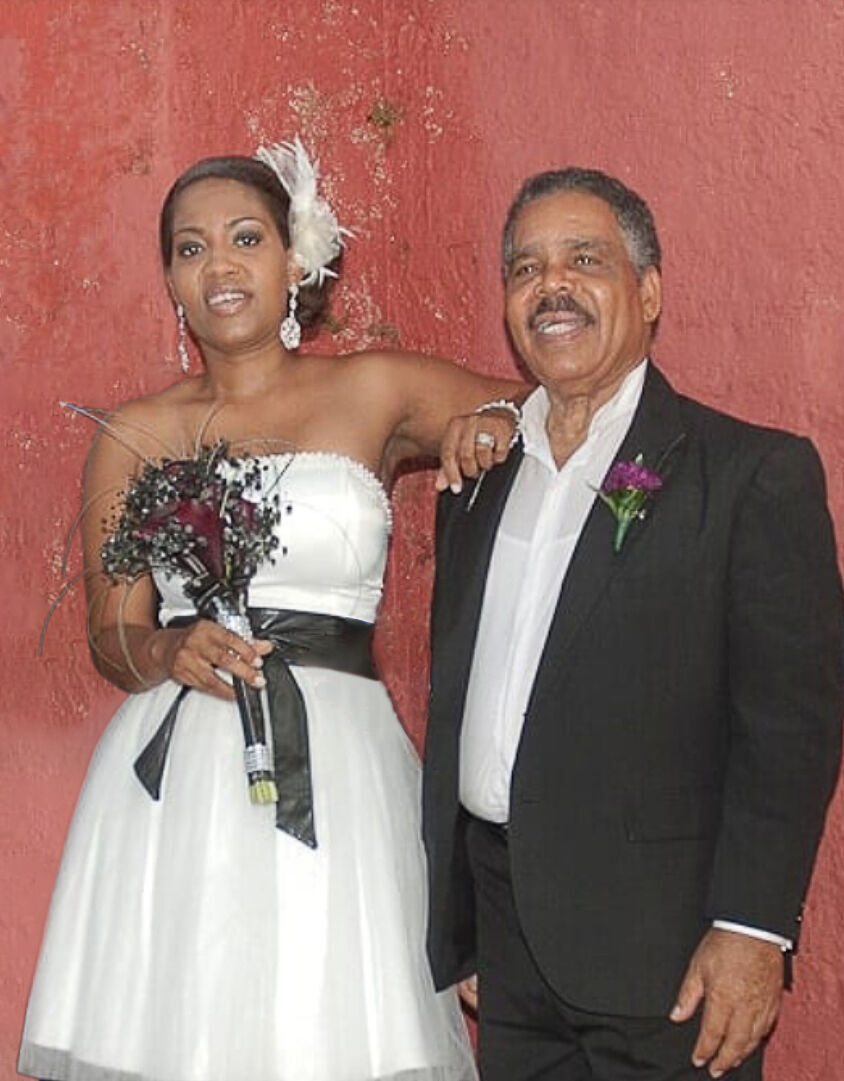
Bridgetown, the capital of Barbados. Photo: iStock/dbvirago
Canada’s Caribbean travel freeze smacks of elitism
For me and many Canadians, these aren’t ‘sun destinations.’
Support independent Calgary journalism!
Sign Me Up!The Sprawl connects Calgarians with their city through in-depth, curiosity-driven journalism. But we can't do it alone. If you value our work, support The Sprawl so we can keep digging into municipal issues in Calgary!
The federal government’s recent decision to suspend travel between Canada and the Caribbean and Mexico set off a chain reaction of panic, uncertainty and chaos—leaving families like mine caught in the crosshairs between policy and real life.
In an attempt to discourage winter holidaying and spring break gallivanting, the Canadian government announced an agreement with four Canadian airlines to cancel all flights to those destinations with two days’ notice, effective January 31.
Explaining the measures, Prime Minister Justin Trudeau stated: “The government and Canada’s main airlines have agreed to suspend service to sun destinations right away… cancelling air service to all Caribbean destinations and Mexico starting this Sunday, up until April 30.”
Trudeau added: “Now is just not the time to be flying. By putting in place these tough measures now, we can look forward to a better time when we can all plan those vacations.”
While public health concerns around COVID-19 are serious and valid, the announcement left many wondering why these two regions were singled out. The dominant new variant at the time originated in the U.K., yet flights from the U.K. and popular spring break destinations in the U.S were not cancelled.
It felt like the rug had been pulled from under us with no warning.
The government’s decision immediately affected Canadians already outside of the country. It also disproportionately affects Canadians from West Indian backgrounds who travel for a variety of important reasons—not just vacations.
Canada is a country of immigrants and allows dual citizenship. The travel freeze and its sloppy rollout smacks of elitism, is myopic and is out of step with the reality of a segment of Canada.
Stranded in Barbados with little information
In August, I travelled to Barbados to escort my Canadian parents back to Canada as my father required urgent medical attention. He subsequently passed away in Canada—an outcome that was unforeseen and took medical professionals by surprise.
With a large portion of my parents’ assets and critical documents in Barbados, my mother was forced to travel back to access their funds to bury her husband and to figure out her next steps. I went with her.
During all this, the announcement was made.
In those first 20 minutes of sheer panic, I told my mother, “I can’t stay in Barbados ‘til May or after.” Many thoughts swirled through my head. I had taken a three-month supply of critical medication that was unavailable in Barbados. I wondered how I would navigate that. I also pondered my livelihood and made frantic phone calls exploring freelance work in Barbados.
My mind was racing. It felt like the rug had been pulled from under us with no warning.

I immediately called the Canadian High Commission in Barbados. My sister in Canada emailed a senator and I scoured the internet for some explanation for what was happening and what that meant for us, but no one had any information.
Also announced that day were pending, stricter quarantine measures which came with a possible $2,000 price tag per passenger. With no other details, including when this would go into effect, our anxiety soared and the feeling that our world was swirling out of control was very real.
For days, we were stranded with no idea of when or how we would get home.
After daily phone calls to Air Canada, we received a phone call giving us three days’ notice to make one of two repatriation flights as the airline was sending a larger-than-usual plane to “rescue” stranded Canadians. We then scrambled to get the now-mandatory polymerase chain reaction (PCR) tests required to enter Canada and to conduct our business.
At the testing facility, we met fellow Canadians in the same situation. We swapped stories and strategized about what we’d do if the new quarantine measures went into effect while we were mid-flight between Barbados and Toronto. The panic was palpable.
The Caribbean and Mexico are much more than ‘sun destinations’ or escapes for winter-weary Canadians.
On the day of our travel, we arrived at the airport to a chaotic scene. Hundreds of Canadians were waiting to check in.
The irony of the situation was not lost on me. In an effort to stop the importation of COVID-19, some 300 passengers were crammed onto a flight bound for Canada—with no social distancing.
In the days following our travel, we were made aware that there was COVID-19 on the flight. We were given no additional details.
Policies should be equitable—not just with vacationers in mind
Many Canadians have little sympathy for international travellers.
For months, the government has asked residents and citizens to avoid non-essential international travel. But these warnings rarely consider the nuances and reasons why people travel.
As well, essential travel has never been clearly defined by the federal government.
While public health is crucial, and hard decisions must be made, this must be balanced with the impact that policies have on different segments of the Canadian population. Life-impacting decisions that could appear to be biased should be made in consultation with the relevant communities.
The Caribbean and Mexico are much more than “sun destinations” or escapes for winter-weary Canadians—they are also places where many Canadians have familial and other ties. And some even live there.
As this policy change shows, policies and real life often collide with damaging effects.
Anmarie Bailey is a writer and journalist who lives in Edmonton. She has a strong background in political writing, but also writes about lifestyle and health. Anmarie loves challenges, which led her to study and work as a writer in New York City, as well as other countries.
Support independent Calgary journalism!
Sign Me Up!The Sprawl connects Calgarians with their city through in-depth, curiosity-driven journalism. But we can't do it alone. If you value our work, support The Sprawl so we can keep digging into municipal issues in Calgary!




